- Title: The Hobbit: An Unexpected Journey
- IMDB: link

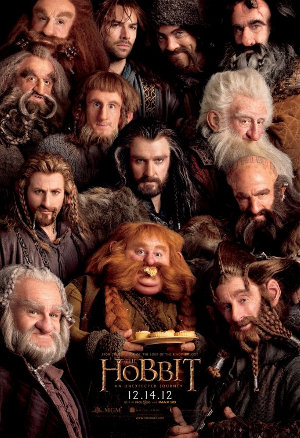 After several delays, including the director and the Tolkien estate both separately suing New Line Cinema and a brief flirtation with Guillermo del Toro taking over the project, Peter Jackson returns to Middle Earth for J. R. R. Tolkien‘s The Hobbit. Roughly one-third of the 300-page children’s fantasy, The Hobbit: An Unexpected Journey feels far too familiar, somewhat less magical, and far more expected, than the title would indicate.
After several delays, including the director and the Tolkien estate both separately suing New Line Cinema and a brief flirtation with Guillermo del Toro taking over the project, Peter Jackson returns to Middle Earth for J. R. R. Tolkien‘s The Hobbit. Roughly one-third of the 300-page children’s fantasy, The Hobbit: An Unexpected Journey feels far too familiar, somewhat less magical, and far more expected, than the title would indicate.
Our story, oddly, begins on the same day as The Lord of the Rings: The Fellowship of the Ring with Bilbo Baggins (Ian Holm) beginning to chronicle his adventures for his nephew Frodo (Elijah Wood), while waiting for Gandalf (Ian McKellen) to arrive to celebrate the Hobbit’s 111th birthday. After this somewhat awkward (not to mention completely unnecessary) sequence, our story finally beings in earnest as the younger Bilbo (Martin Freeman) meets Gandalf the Grey and thirteen dwarves for an impromptu dinner which will forever change his life.
Since the film doesn’t spend time properly introducing or differentiating the dwarves (Thorin Oakenshield, Gloin, Óin, Ori, Nori, Dori, Dwalin, Balin,Kili, Fili, Bifur, Bofur, and Bombur), other than their king Thorin (Richard Armitage), I won’t spend time doing its work here. Needless to say the characters are largely interchangeable, and, despite informing us repeatedly of their lack of fighting ability, our pack of dwarves proves to be preposterously skilled enough to take on thousands of Goblins without a single character getting as much as a scratch (making the heroic standoff at Helms Deep from The Lord of the Rings: The Two Towers look somewhat pathetic by comparison).
The group, which Bilbo is pushed and tricked into joining, sets off to reclaim the lost dwarf kingdom of Erebor which was taken by the dragon Smaug years ago. Sadly, as he’s really one of only two new characters worth noting, Smaug gets almost no screentime in a performance that makes the shark in Jaws look like a camera whore. Jackson toys with us in the flashbacks by never showing the audience a clear look at the dragon, and even the film’s final shot gives us only the tiniest glimpse of one of the most important characters of Tolkien’s novel.
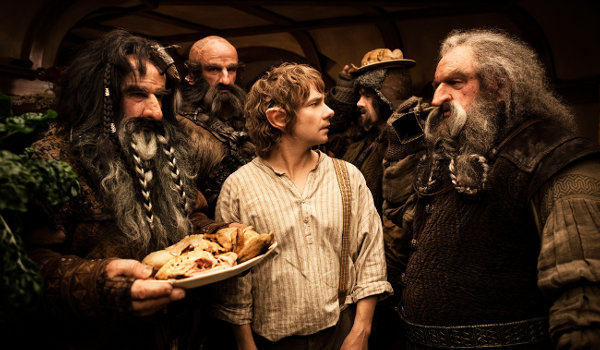
Many of the characters are mostly indistinguishable, the locations are all a little too familiar (through no fault of its own Rivendell simply can’t be as magical more than a decade later), the little we see of Smaug is disappointing, and the battle with the Goblins feels more like a Temple of Doom theme park ride. However, despite this issues, the film does deliver some good moments… and, yes, quite a bit of walking.
The best sequence of the film, by far, is Bilbo’s battle of riddles with Gollum (Andy Serkis) deep in the caves underneath the Goblin kingdom. The sequence looks terrific, as does Gollum, and it’s one of the few pieces of the film where the audience isn’t hit over the head with scenery and effects (other than Gollum himself), allowing Tolkien’s story (rather than the lush scenery and the film’s much discussed 48 frames per second) to do the heavy lifting.
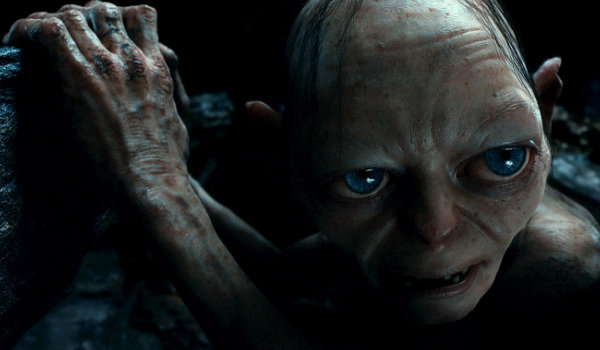
Although I was unable to view the film in IMAX, I did see a version presented in 3D at the much ballyhooed 48 frames per second which gives the entire movie looks incredibly clear on-screen. The effect both helps and hurts the movie as the enhanced view certainly makes everything on-screen pop but by doing so it makes many of the film’s sets (such as Bag End) look like movie sets for the first time. The higher frame rate also brings a little too much clarity to many of the film’s fast-paced 3D and CGI-heavy action sequences which makes the effects look mediocre. On a couple of a occasions, such as the battle of the stone giants on the mountain pass, it even made me wince.
The enjoyment of seeing McKellen, Christopher Lee, and Hugo Weaving reprise their roles from The Lord of the Rings allows me to forgive them for looking far older than in the previous films (which all take place decades after The Hobbit). And as a fan of Sherlock I must admit Freeman is an inspired choice to play the younger version of Ian Holm. Of the other new characters Armitage’s Thorin is the real standout, even if the film requires him to be unnecessary dickish to Bilbo for nearly the entire film.
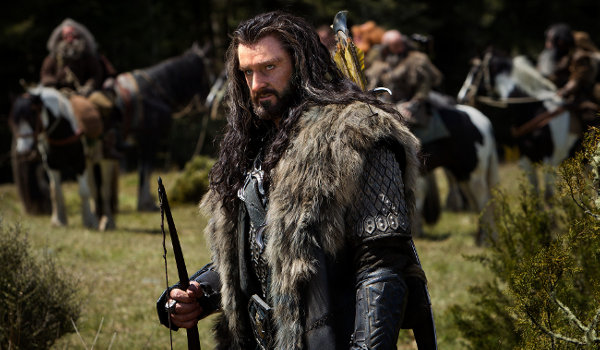
Even in the sequences that work the events of the film definitely feel unnecessarily drawn-out in order to craft three films of a much smaller novel than any of The Lord of the Rings books when a single, and far more focused film, would probably serve just as well. Although I’m a fan of Sylvester McCoy, the entire subplot involving Radagast the Brown (who is hardly mentioned in the actual novel) as well as the teasing of the rising of a necromancer in the forest, feels mostly like filler.
The Hobbit: An Expected, and Familiar, Journey should appease most fans, at least until they make it home and think back how little of The Hobbit is present in this first installment. Yes the movie delivers moments big and small from the novel, including the trolls and the dwarves singing of the Misty Mountains, but it also looses its way while slowly meandering through its nearly three-hour running time.
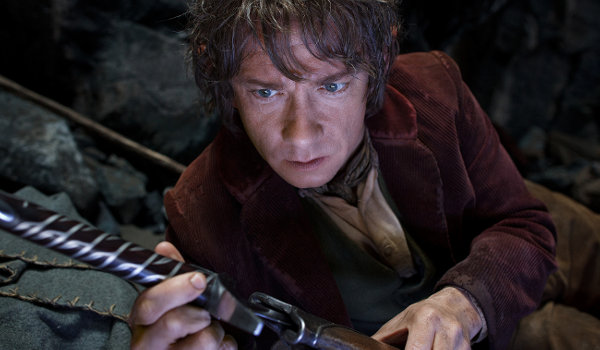
By the end of the movie the audience is left with a nearly identical final shot from The Two Towers where the characters look into the distance to see how far they still have to go to reach their mountain. A final shot for the first film in a trilogy should make you yearn for more, not feel instantly exhausted at what you’ll have to wade through to see the finish line. I’m not sure I have the strength for the rest of the journey. Sigh, at least next year’s sequel should have far more of our dragon (who might finally be allowed on-camera and allowed to speak with Sherlock Holmes‘ voice). I’ll admit, that I want to see.

” Smaug gets almost no screentime in a performance that makes the shark in Jaws look like a camera whore.” – classic.